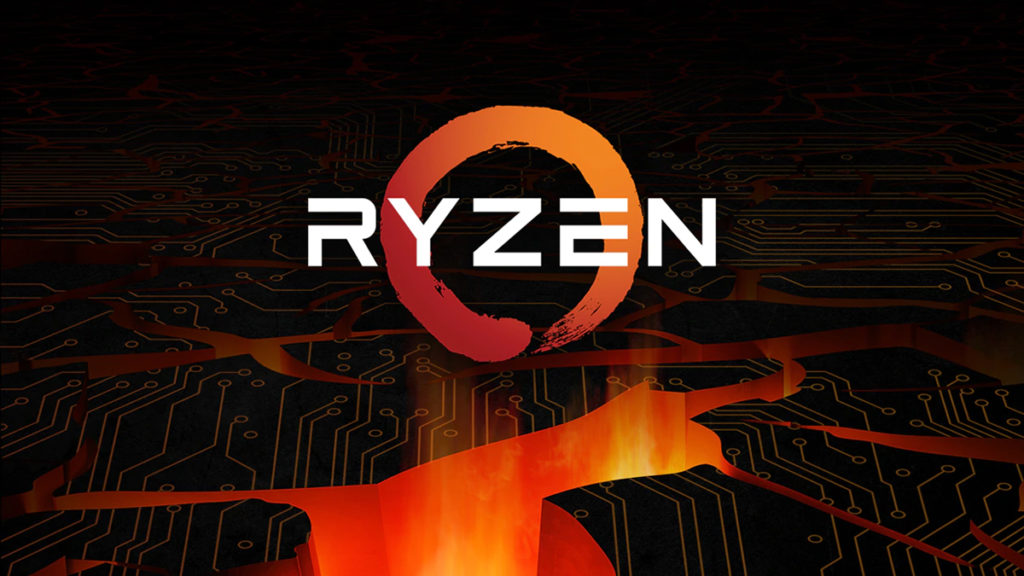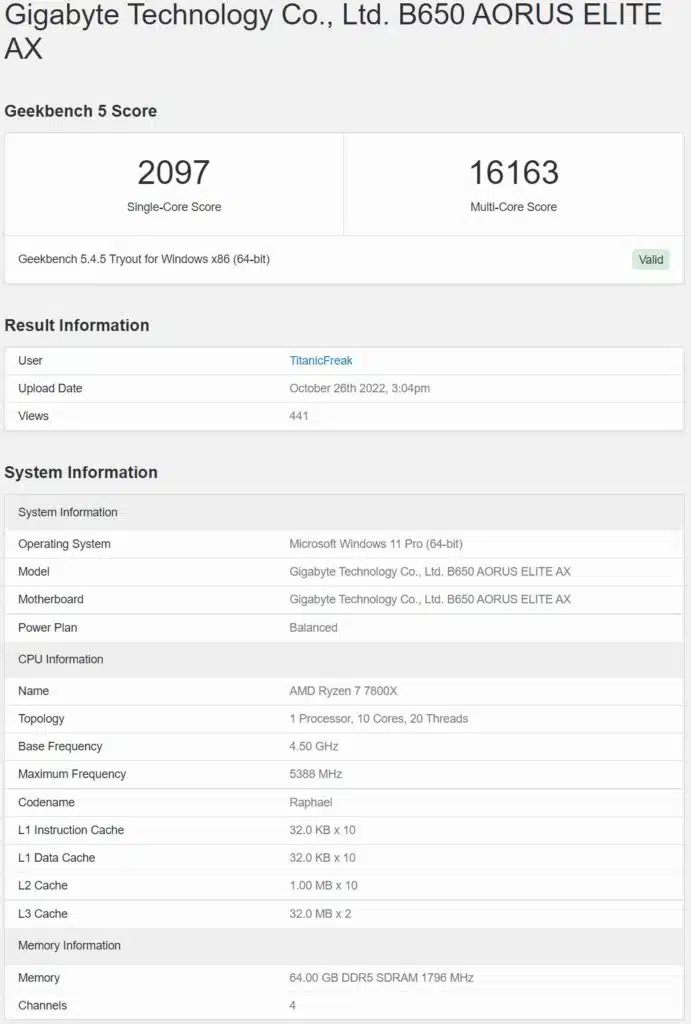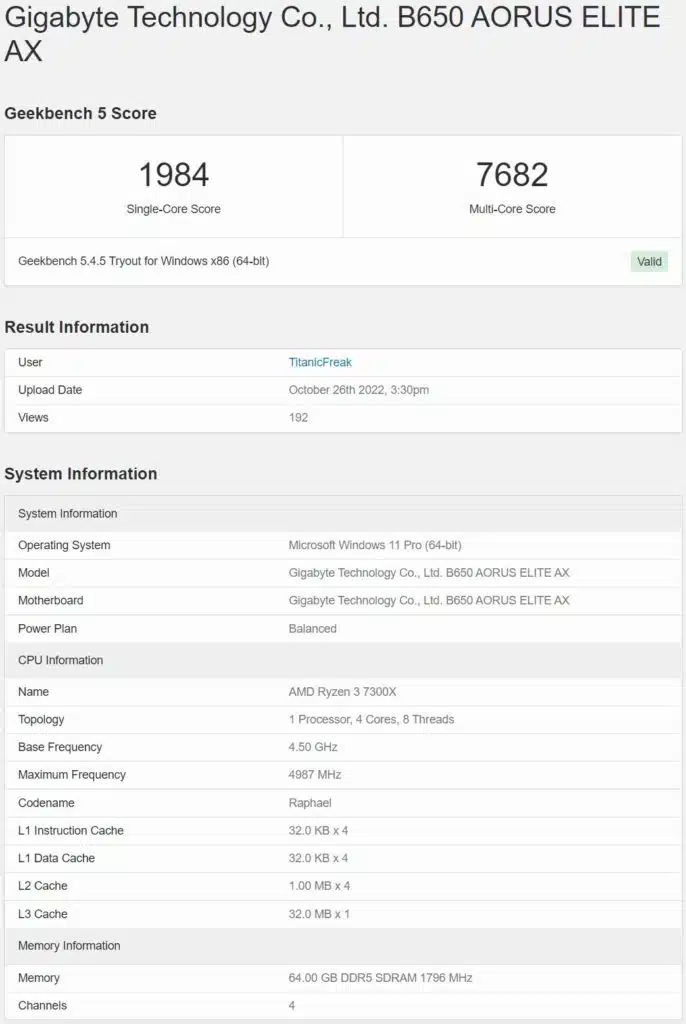
Update:
Tech information website Chips and Cheese has posted an article claiming that yesterday’s bench results were actually faked. They have a detailed explanation showing how their own in-house software was used to create the faked CPUID and that the process has been available at least since Bulldozer. They stated that the software was originally designed for monitoring CPU bottlenecks in testing but also then showed an ability to change a CPUID which is then carried over into various benchmarking software which retrieves it, including Geekbench and CPU-Z.
We have tested Geekbench, Cinebench, AIDA64, HWMonitor, Blender Benchmark, and many more. All of them are impacted and show the modified CPUID.
Geekbench scores for AMD 10-Core/20-Thread Ryzen 7 7800X and 4-Core/8-Thread Ryzen 3 7300X processors have been spotted. Scores for both were reported by @Benchleaks (1, 2) and each was tested on a Gigabyte B650 AORUS ELITE AX motherboard with 64 GB DDR5 3600 MHz memory.
Ryzen 7 7800X
The Ryzen 7 7800X, as tested, is a 10-core/20-thread processor with a base clock of 4.50 GHz and a boost clock of 5.4 GHz. It has L1 320 KB, L2 10 MB, and L3 64 MB, caches. It managed a single-core score of 2,097 which is 21.4% higher than the 5800X. A multi-core score of 16,163 which is a 50.4% increase over the 5800X. This AMD 10-core/20-thread processor fills an interesting slot in the product stack as a step above its popular Octa-core CPUs. With extra cores and threads combined with fast clocks, it has a lot of potential for heavy workloads and gaming.
Ryzen 3 7300X
The Ryzen 3 7300X, as tested, is a 4-core/8-thread processor with a base clock of 4.50 GHz and a boost clock of 5.0 GHz. It has L1 128 KB, L2 4 MB, and L3 32 MB, caches. It managed a single-core score of 1,984 which is 14.8% higher than the 5800X. A multi-core score of 7,682 saw a 24.5% increase over the 5800X. While many PC enthusiasts have moved beyond quad-core processors for gaming this one has some interesting potential for budget builds with its high clock speeds.
Neither of these processors has been announced yet so the pricing, power needs, and final specifications are not officially known but could be revealed soon. Each shows a competitive effort for its respective place in the product stack in terms of raw performance.


